Palagonite is a naturally occurring premium soil conditioner that rapidly remineralises nutrient depleted soils. It is particularly valuable for a range of applications in agriculture and animal nutrition.
Farmers and gardeners like it because it is easy to spread, does not create hazardous dust plumes and blends well with composted manures.
“The nutrients in Palagonite are readily bio-available” Confirmed by Southern Cross University.

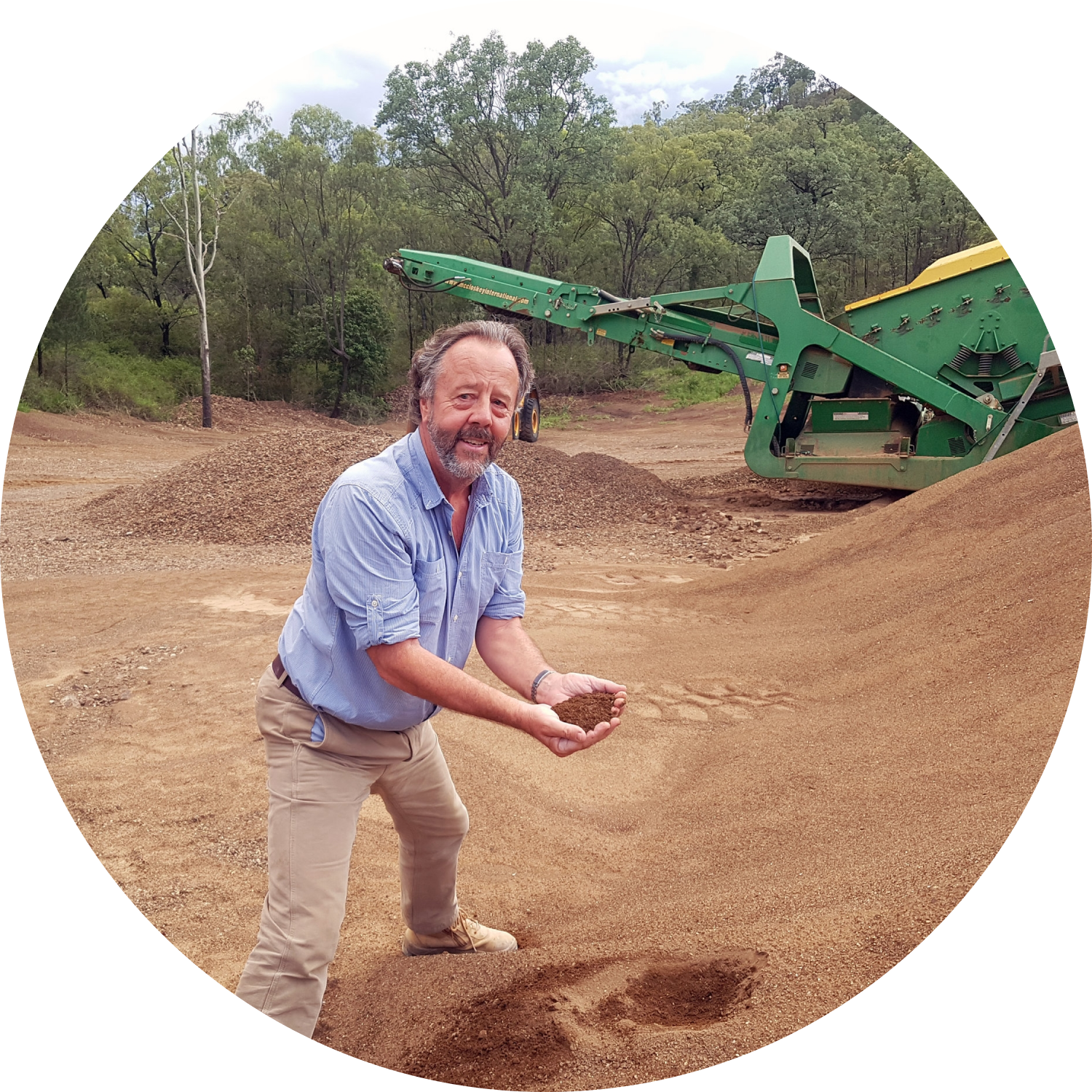
Honours degree in Geology, and Diplomas in Mineral Economics and Organic Agriculture. He is also a member of the Australian Institute of Mining and Metallurgy.

Palagonite is a volcanic mineral substance that was created by a rare and unique event, in which hot basalt lava flowed into a freshwater lake at the Chalkmine quarry site, south of Gatton in Queensland, around 20 million years ago.
The process of palagonisation began as the molten lava was quenched, forming a rind or coating of volcanic glass, that over time has devitrified from glass into a sandy yellow-brown palagonite material occurring around our altered basalt gravels. This unique material is largely amorphous (non- crystalline) containing a rich and well-balanced suite of bio-available mineral nutrients – Palagonite is not crushed rock dust!
Globally we are seeing the disastrous effects of our extractive and unsustainable agricultural system on the planet’s environment. A large percentage of our food-growing soils are now mineral depleted, over-farmed and mismanaged. It is no understatement that without healthy functioning soils, society, as we know it would collapse. In fact, many historians have tracked the rise and fall of civilisations alongside the curve of soil health. Simply put, it is the basis for our existence. Compaction, erosion, chemical residuals, mineral nutrient depletion and a damaged soil microbiome are all issues that Palagonite can ameliorate at a low cost compared to other methods.

Soil re-mineralisation with Palagonite is the key to achieving a regenerative and sustainable agricultural industry. Adequately mineralised soils not only promote better animal and human health, by growing more nutrient dense food, but also provide the basis of health in the greater ecosystem.
Plants, animals and soil microbes all rely upon a balanced, and sufficient soil mineral content to function effectively and form the beneficial relationships that are the basis for healthy soil and optimal plant growth.
Palagonite is a source of bio-available silicon, iron, calcium, magnesium, sodium, phosphorous, potassium and contains all of the essential trace elements like copper, zinc, manganese, cobalt, nickel and chromium.
Palagonite contains all 22 nutrients now considered essential for optimal plant growth. Only Nitrogen, Sulphur and Boron are particularly low, and along with phosphorous and potassium, can be increased to sufficient quantities when blended with organic materials like composted manures.
The largely amorphous structure of the Palagonite means these nutrients are far more plant available than the nutrients in crushed crystalline basalt or granite rock sources which also contain respirable crystalline silica, a serious health hazard if inhaled.
Palagonite is rich and comprehensive suite of essential nutrients makes it the perfect base product for individual crop nutrition programs.

Since the 1940’s, there has been a steady decline in the essential mineral nutrient content of food crops and meat. Extractive farming methods using soluble chemical fertilisers, mainly supplying only NPK, are the direct cause of this major problem. Over time the reserves of essential mineral nutrients in the soil have been used up and not replaced, If the essential mineral nutrients in the soil are absent, locked up, or seriously depleted, they are also absent, or low, in meat and produce sourced from the depleted soil.
This has led to the widespread rise of health issues, caused by nutrient mineral deficiencies in the food we consume. It is no coincidence, that in order to achieve and maintain optimal health, animals, and humans need adequate supplies of the same 22 essential mineral nutrients that plants require for optimal growth and nutrient density.
It is now well recognised that remineralisation of the soil is the fundamental key to restoring the nutrient density of the food we consume, and restoring nutrient density to the food we consume is the essential key to improving the health of the population.
Palagonite is easily the most cost effective, and an effective soil remineralising product.
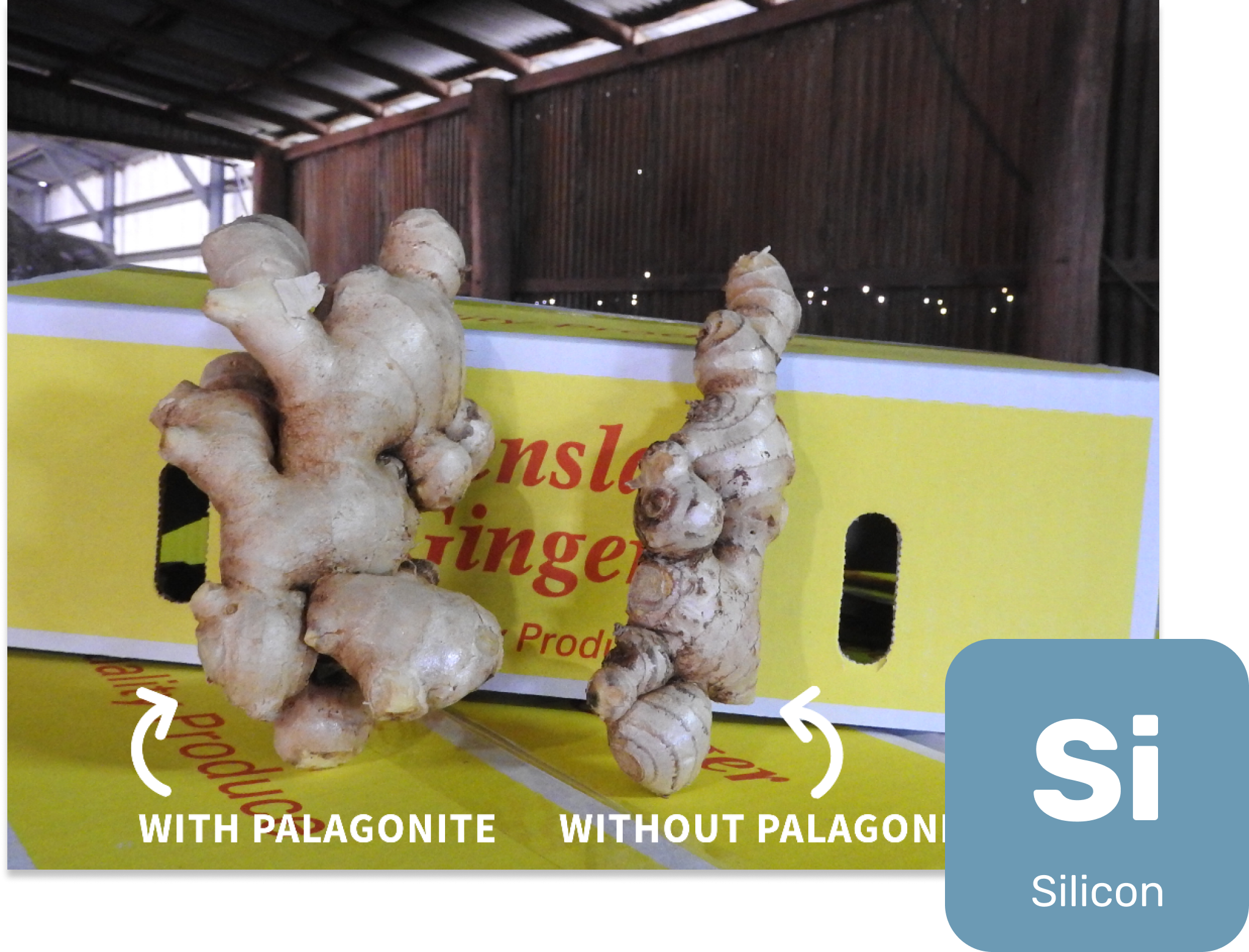
Silicon is the second most abundant element on the planet, and yet the plant available form has become critically low in most of our farmed soils. All plants need silicon, all plants use silicon, but farmers using extractive farming methods haven’t been replacing it for a long time.
It turns out silicon is a key player in the immune response and the stress response, helping the plant to resist pathogenic attacks, pest damage, and harsh weather conditions. The first line of defence is the plant cell wall. Fungal pathogens use their hyphae to pierce through the wall and into the cell to feed and spread to other cells. Silicon forms much of the cellular structure, and when in abundant supply, will considerably strengthen this all-important front-line defence. Plants have even been shown to rush all available silicon to attack sites! High silicon content also increases the plants ability to cope with stressful conditions such as drought, heat and frost.
Palagonite provides abundant magnesium and calcium as the dominant exchangeable cations, two key minerals in soil health. The balance between the two governs a soils ability to breathe, and support non-pathogenic aerobic microbial activity. Palagonite has been shown to have a flocculating effect. This means the balance is tipped in favour of calcium, which opens and softens the soil structure increasing the oxygen content and overall friability.
Calcium and magnesium also play key roles in plant health. Calcium is the king of plant health as it governs the transport and delivery of all other minerals. Calcium also plays a key role in the overall strength of the plant, particularly in yield, quality, size and shelf life. Magnesium is an essential driver of photosynthesis and chloroplast formation. Without it plants struggle to utilise sunlight and create chemical energy. Magnesium also promotes germination, early stage plant growth, and overall plant health.
Palagonite is a more cost effective, and superior alternative to the application of Dolomite or Lime. This is due to having calcium and magnesium as the dominant exchangeable cations, and a pH of 8-8.5. The other 20 essential nutrients are a bonus of significant value. Also, as an undesirable consequence, every tonne of lime applied results in 400kg of CO2 being released into the atmosphere. Palagonite is not just a rich source of silicon, magnesium, calcium and all the other equally important essential mineral nutrients that make up the composition of this unique volcanic substance. Palagonite also assists with several key functions in soil structure and health.
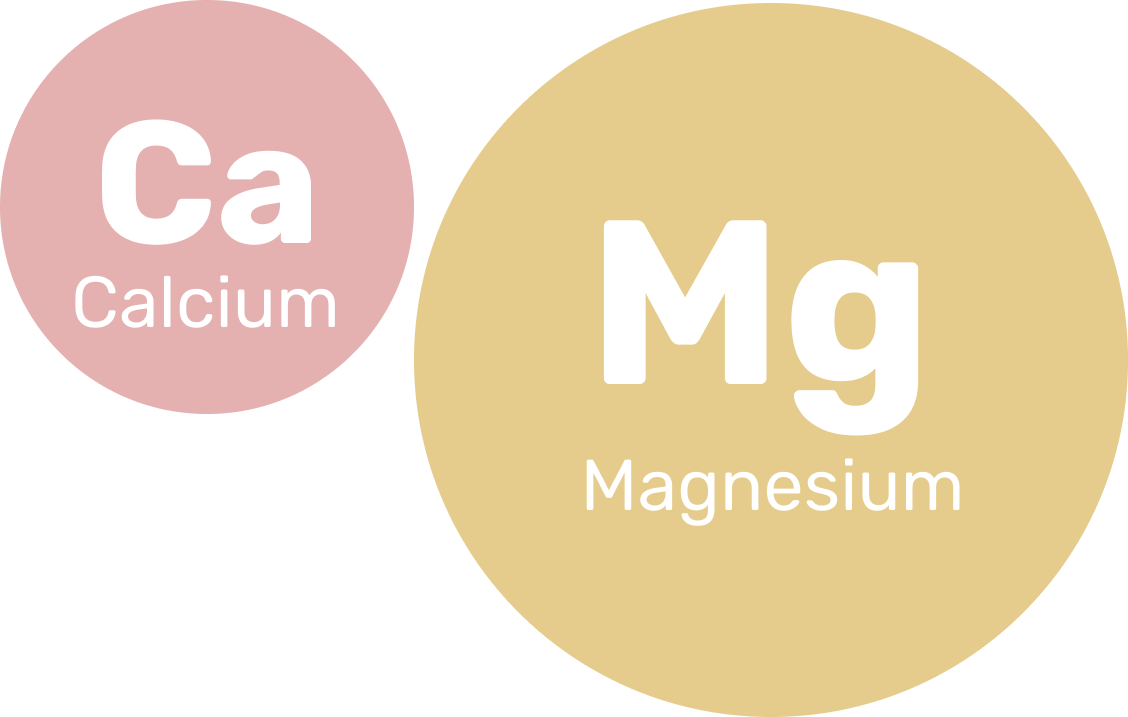
Composting is now a large part of organic agriculture. Compost provides a way to increase fertility, build organic matter, sequester carbon and boost the microbiome in farmed soils.
The addition of palagonite to the start of the composting process has a range of beneficial effects. Not only does this create a low odour, well finished product, that is rich in the full suite of essential nutrients that are now activated by microbial activity, the finished compost also contains higher levels of the volatile Nitrogen compounds (+20%), such as ammonia, that would usually have volatilised to the atmosphere during the composting process.
Combined with all of the other well-known benefits of compost, Palagonite increases the total essential nutrient and mineral content substantially. Composting with Palagonite is perhaps the most beneficial application as it creates a unique, and nutritious, complete organic fertiliser, with all the benefits of compost, and Palagonite, combined. Palagonite has also been shown to reduce the composting period from over 22 weeks to less than 15 weeks in commercial scale operations.
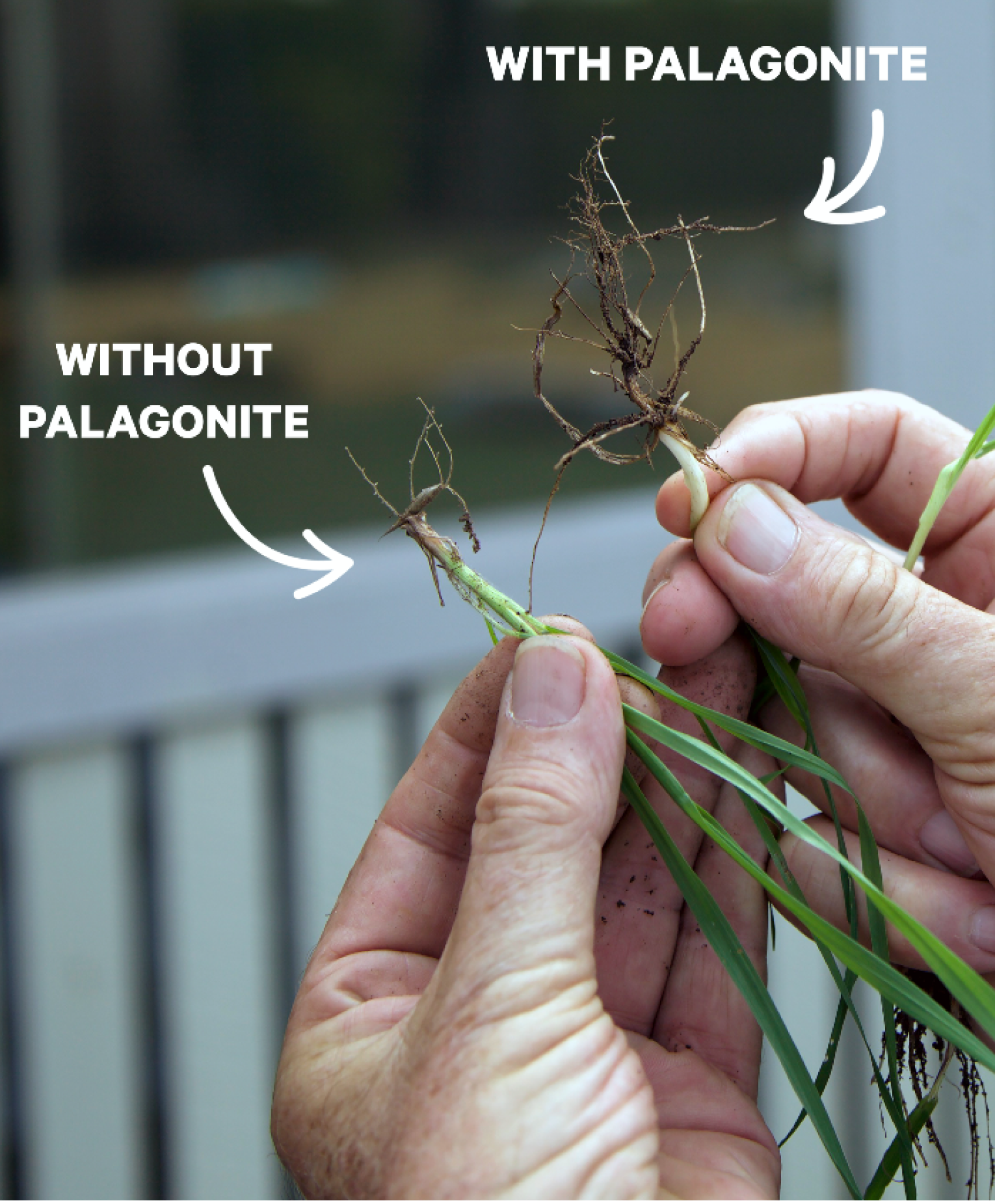
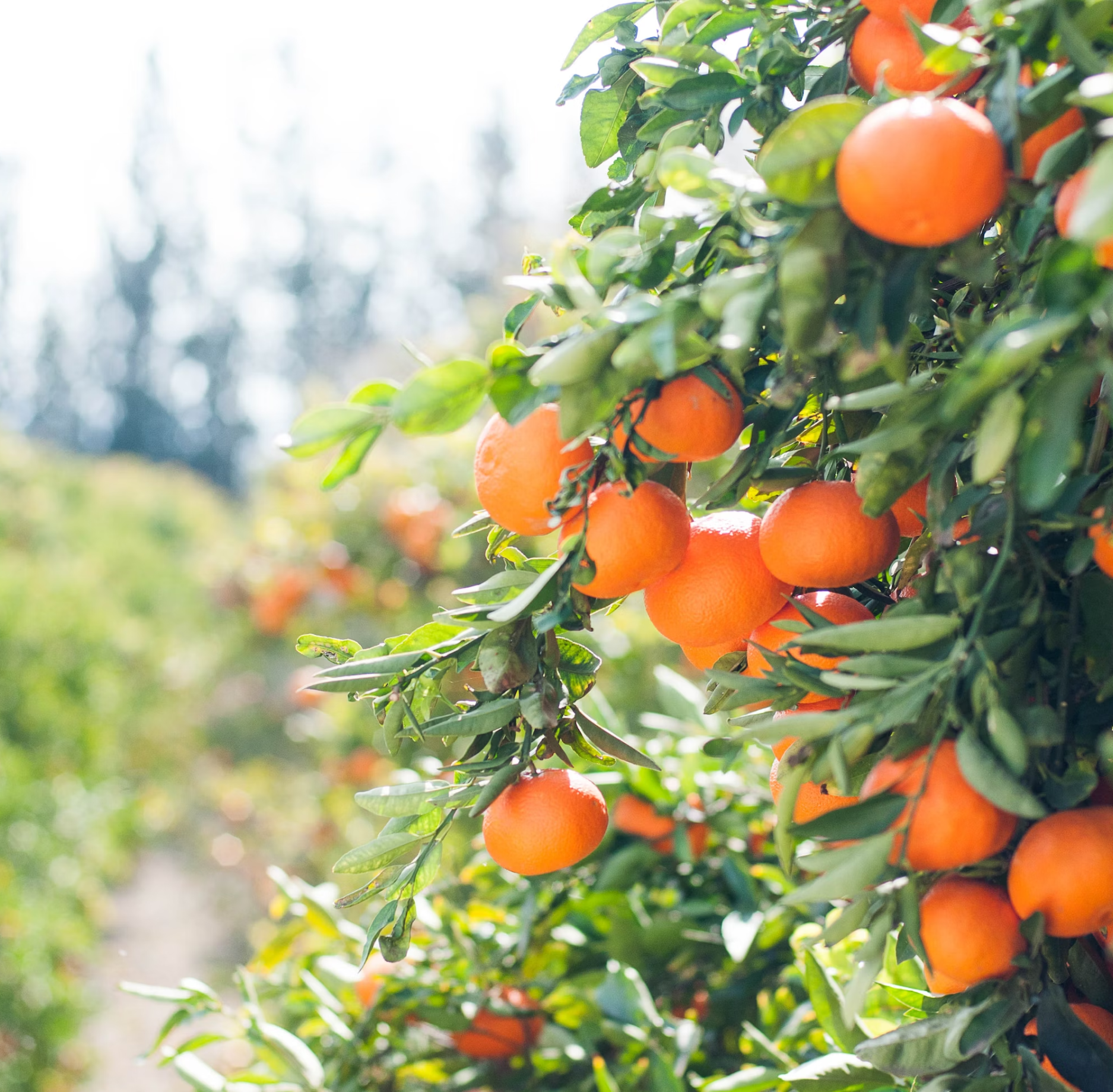
The cation exchange capacity (CEC) is a measure of a soils ability to store and exchange positively charged nutrients, and is an important driver of fertility. The CEC value of most soils ranges between 10 and 25, while other crushed basalt rock dusts between range between 4 and 14.
Palagonite has a CEC of 34 and this is a significant advantage to soil fertility. The addition of palagonite to a soil will increase the capacity of the soil to attract and hold naturally occurring and applied soluble nutrients. It will reduce leaching and make these retained nutrients available to the crop, as required, to maintain optimal growth.
Palagonite has good levels of paramagnetic activity which has been associated with improved soil fertility in numerous ways. However, recent research in geomicrobiology has demonstrated that some soil microbes use magnetic iron particles in the soil as a battery with some species pumping electrons into the particles while others extract. Energy production through the exchange of electrons has long been known to be the driving force behind all life on earth. The abundant amounts of fine grained iron particles in palagonite can serve as conductors, sinks and sources of electrons for soil microbes, depending on their needs.
The ability of palagonite to hold significant amounts of water is a result of its large surface area, due to its largely amorphous structure, and non-swelling smectite clay content. This clay is unlike most smectite clays in that it allows water absorption and desorption without expansion or contraction.
In fact, palagonite can hold up to 40% of its weight in water without losing its fine granular consistency. This unique property will play a key role in repairing many of our damaged soils which have lost much of their ability to hold onto water, which allows leaching, and runoff of applied soluble fertilisers, and erosion of precious top soils.

Palagonite is also proving to be an effective microbial catalyst; this is most likely due to the broad spectrum of bio-available nutrients it contains along with the fine grained iron particles acting as both a source and receptor of electrons. In recent years interest in microbial soil life has surged, it has become increasingly apparent that microbes are essential to plant health and soil fertility. They are in fact, the power-house of the soil, - “Feed the microbes, to feed the soil” is now a common mantra. Palagonite is the ideal food source for soil microbes.
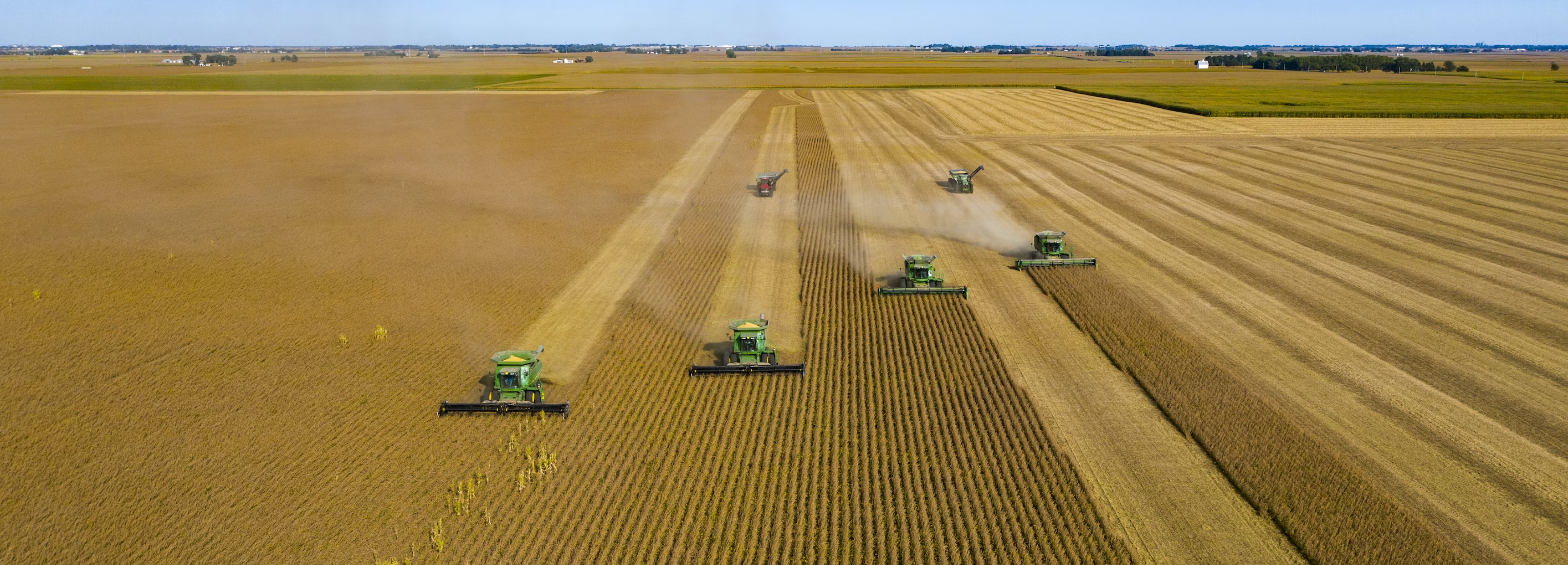
Palagonite has also demonstrated exciting properties in the areas of odour control, and waste management. The addition of palagonite to some of the more odorous and more difficult to compost organic waste streams is now being used to create rich, and complete, regenerative fertilisers to restore the soil fertility, and repair the damage done by environmentally destructive past practices.
In numerous field trials conducted with a range of crops since 2015, Palagonite has been shown to reliably increase yields (e.g. Ginger, more than 50%), and improve the quality and nutrient density of crops trialled. Reduced irrigation requirements along with less pesticide applications, due to a healthy crop and soil – has been shown to reduce crop costs, and increase bottom line profits.
Palagonite is by far the most cost effective soil repair tool available to the modern farmer today. As the atmosphere warms and the climate shifts, farming is only going to face more new challenges. Extreme weather, resistant pests, worn out soils and devastating diseases are now a fact of life in many parts of Australia. It is essential that our farming systems adapt and change to regenerative farming methods to become resilient and sustainable over time. This can only be achieved with a major effort by all stakeholders to remediate and re-mineralise our soils.

St Regis Polo Club, Dubai
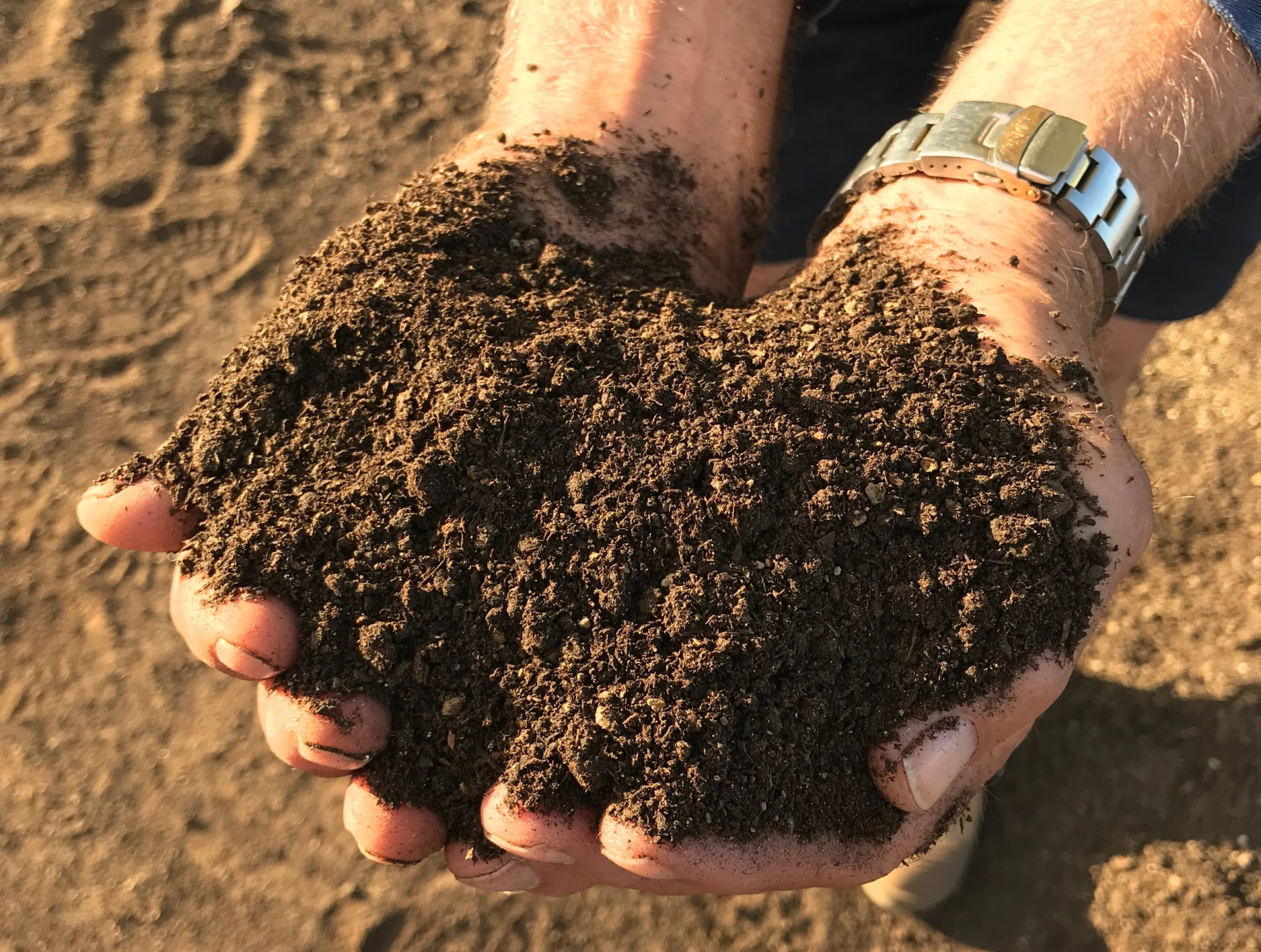
Chris Cameron, Platinum Compost

Queensland's largest organic farmer, Anthony Bauer, discusses Palagonite - a rock mineral that shows huge promise in not just improving crop taste, uniformity and growth but possesses amazing restorative properties for soil.
Anthony Bauer, the biggest Organic Vegetable grower in Queensland has recently formed a new company "Lockyer Valley Organics" to better reflect the locality where he grows his well sort after organic vegetable range. For 27 years he has grown high quality organic products which he currently sells to Woolworths and other large distribution companies.


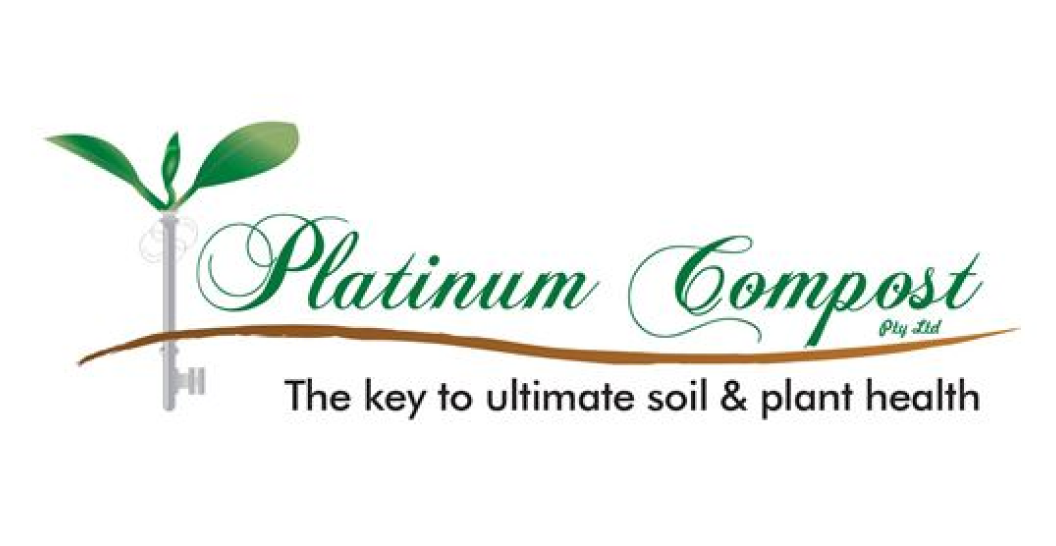












Silicon 22.30%
Aluminium 7.70%
Iron 10.10%
Manganese 0.23%
Magnesium 3.30%
Calcium 5.10%
Sodium 2.36%
Phosphorus 0.24%
Potassium 0.77%
Total Carbon 0.03%
Total Nitrogen 0.03%
Cobalt 60.0 ppm
Copper 40.0 ppm
Nickel 90.0 ppm
ZinC 170 ppm
Molybdenum 1.0-3.0 ppm
Selenium 0.3-0.8 ppm
Chloride 62 ppm est
Sulphur 4.4 ppm
Boron 0.06 ppm
Paramagnetism 600-1300c/g/s
Water holding Capacity >65%
pH 8-8.5
Cation Exchange Capacity 35meq/100g

The benefical effects of Silica have been thought to be due to the precipitation of amorphous silica in plants which acts as a mechanical barrier (Cheng 1982; Jones and Handreck 1967). Silica protects the plant by other processes which can boost the defense mechanisms, including the accumulation of lignin, phenolic compounds, and phytoalexins (Epstein 1999; Fawe et al. 2001; Ma and Yamaji 2006).
Please contact us via the form below and we’ll get back to you as soon as we can.
Alternatively, we are available for support from 9am to 5pm AEST, Monday to Friday